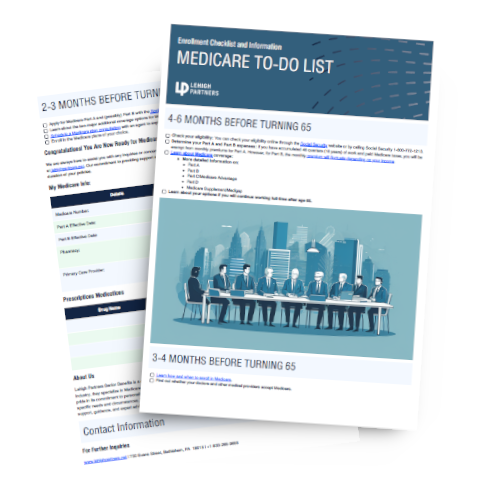Medicare, the federal health insurance program for people aged 65 and older (as well as certain individuals with disabilities), offers several coverage options to meet the diverse needs of beneficiaries. For Medicare-eligible individuals, understanding the different choices available can be overwhelming. In this article, we will explore the pros and cons of three primary coverage options: Original Medicare alone, Medicare Advantage (Part C), and Original Medicare combined with a Medicare Supplement (Medigap) plan and Prescription Drug Coverage (Part D).

Original Medicare is available to individuals who are at least 65 years old, certain younger people with disabilities, and those with end-stage renal disease.
Section 1: Original Medicare
Original Medicare comprises Medicare Part A (Hospital Insurance) and Part B (Medical Insurance). This traditional fee-for-service coverage, managed by the federal government, provides a standard set of healthcare benefits. Here are the pros and cons of relying solely on Original Medicare:
Pros:
- Broad Network: Beneficiaries can access healthcare services from any provider who accepts Medicare.
- Consistent Coverage: Original Medicare policies remain consistent across geographic areas.
- Flexibility: No restrictions or referrals are needed to see specialists.
Cons:
- Coverage Gaps: Original Medicare does not cover certain services, such as prescription drugs, dental, vision, and hearing.
- Cost Sharing: Beneficiaries are responsible for paying deductibles, coinsurance, and sometimes substantial out-of-pocket costs.
- No Out-of-Pocket Maximum: Unlike some other coverage options, there is no cap on the amount beneficiaries can pay for uncovered services in a given year.

Medicare Advantage plans, also known as Part C, are available to individuals who are eligible for both Medicare Part A and Part B, and reside in the plan's service area.
Section 2: Medicare Advantage (Part C)
Medicare Advantage, also known as Medicare Part C, is an alternative to Original Medicare. Administered by private insurance companies, these plans usually combine Parts A, B, and often D into a single policy. Here are the pros and cons of Medicare Advantage:
Pros:
- Expanded Benefits: Many Medicare Advantage plans offer additional benefits such as prescription drug coverage, dental, vision, and hearing services.
- Cost Predictability: Advantage plans typically have an annual out-of-pocket maximum, providing financial protection against excessive healthcare expenses.
- Care Coordination: Some Advantage plans include care management programs to assist beneficiaries in navigating their healthcare needs efficiently.
Cons:
- Provider Networks: Medicare Advantage plans use provider networks, limiting beneficiaries to in-network providers. This can be a drawback for individuals who prefer their current doctors or specialists.
- Referrals and Prior Authorization: Prior authorization and referrals may be required, adding an extra step for accessing specific services or seeing specialists.
- Plan Limitations: Advantage plans have specific rules and restrictions that can affect the availability and scope of coverage for certain services or procedures.

Eligibility for a Medicare Supplement is available to individuals who are enrolled in Medicare Part A and Part B.
Section 3: Original Medicare with Medicare Supplement and Prescription Drug Coverage (Medigap and Part D)
For those who prefer a comprehensive coverage solution alongside Original Medicare, combining a Medigap plan and Part D prescription drug coverage can be a prudent approach. Here are the pros and cons:
Pros:
- Extensive Coverage: Medicare Supplement plans, also known as Medigap, can help fill the gaps in Original Medicare, covering costs like deductibles, copayments, and coinsurance.
- Freedom to Choose Providers: With Medigap, beneficiaries can typically see any doctor or specialist who accepts Medicare.
- Financial Protection: Medigap plans provide a predictable structure for out-of-pocket expenses, depending on the chosen plan.
Cons:
- Higher Premiums: Medicare Supplement plans often come with higher monthly premiums compared to other coverage options.
- Separate Prescription Drug Plan: Beneficiaries need to enroll in a standalone Part D plan to ensure prescription drug coverage, adding an additional cost.
- No Coverage for Non-Medicare Approved Services: Medigap plans only cover services approved by Medicare, possibly excluding some alternative treatments or procedures.

It is important to seek professional guidance for Medicare insurance or plans to ensure that you understand the available options, eligibility requirements, and costs associated with each plan.
Section 4: Seeking Expert Assistance
Choosing the right Medicare coverage can be complex and requires careful consideration. To navigate the various options and determine the most suitable coverage for individual needs, it is wise to consult a knowledgeable Medicare insurance agent. Lehigh Partners offers a free coverage review to assist beneficiaries in discovering the best coverage options based on their unique circumstances. Contact a Lehigh Partners agent today at (833) 265-9655 for a personalized consultation.
Conclusion:
When it comes to selecting the best Medicare coverage, every individual's needs and preferences differ. Original Medicare alone, Medicare Advantage, or Original Medicare combined with a Medicare Supplement and Prescription Drug Coverage are all viable options, each with its pros and cons. By understanding the distinctive features of each choice, beneficiaries can make informed decisions that align with their healthcare requirements and budget. Remember, seeking professional guidance can greatly simplify the process and ensure the selection of the most suitable Medicare coverage available.

